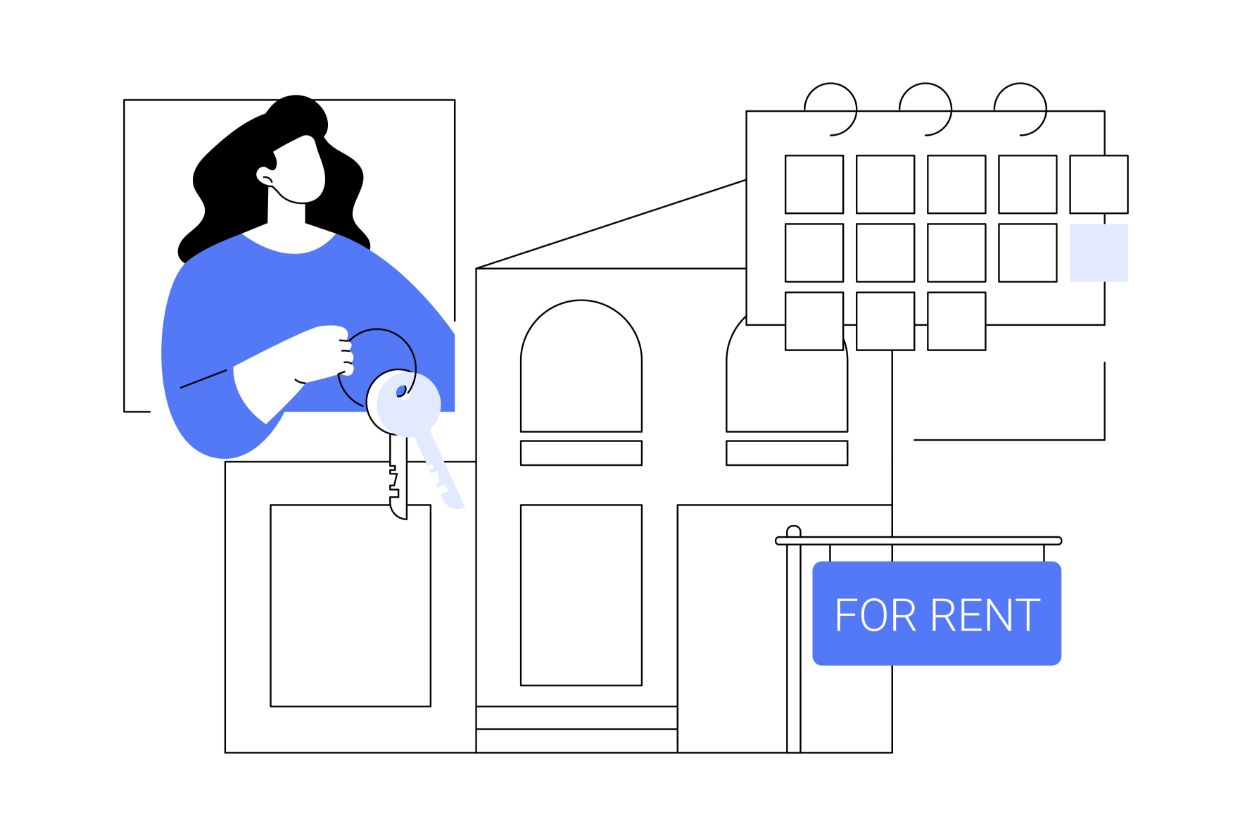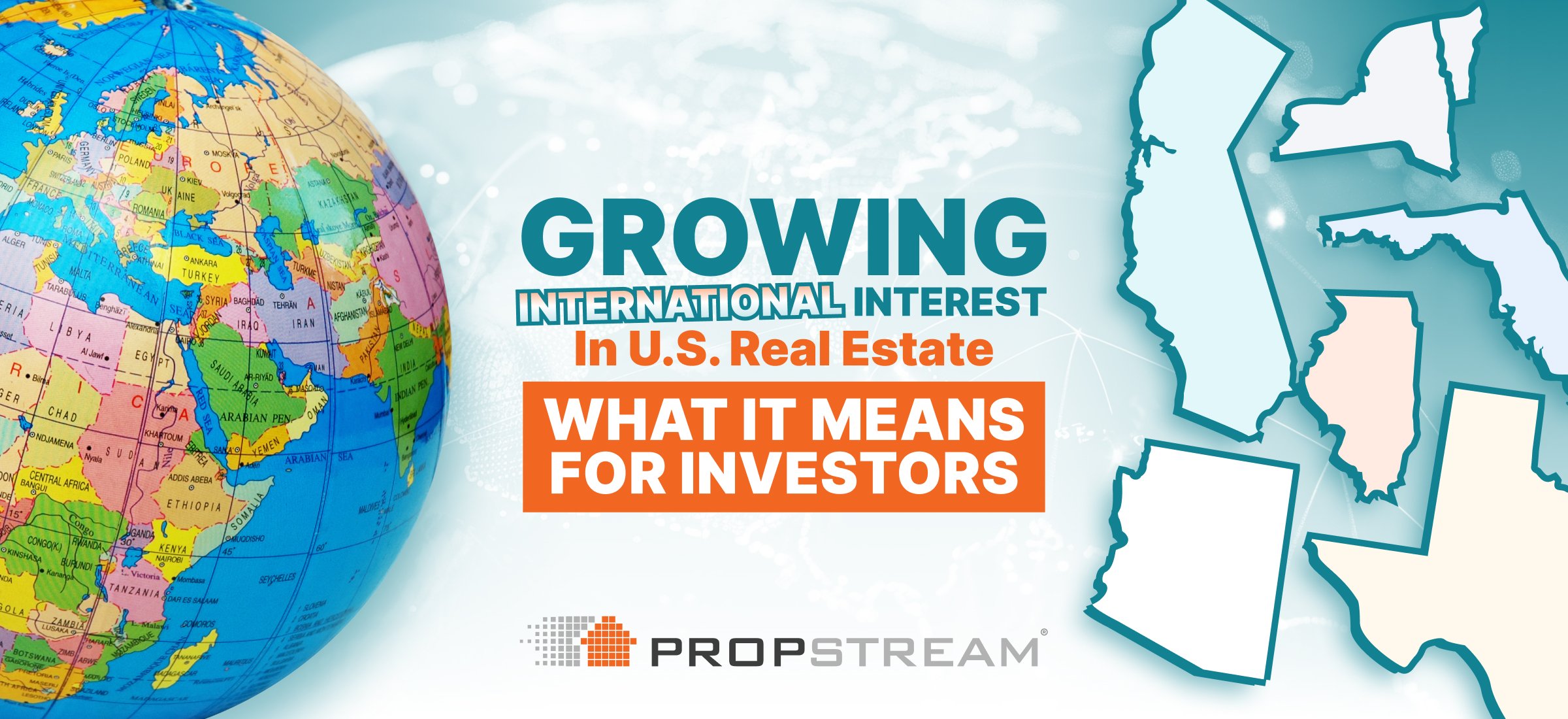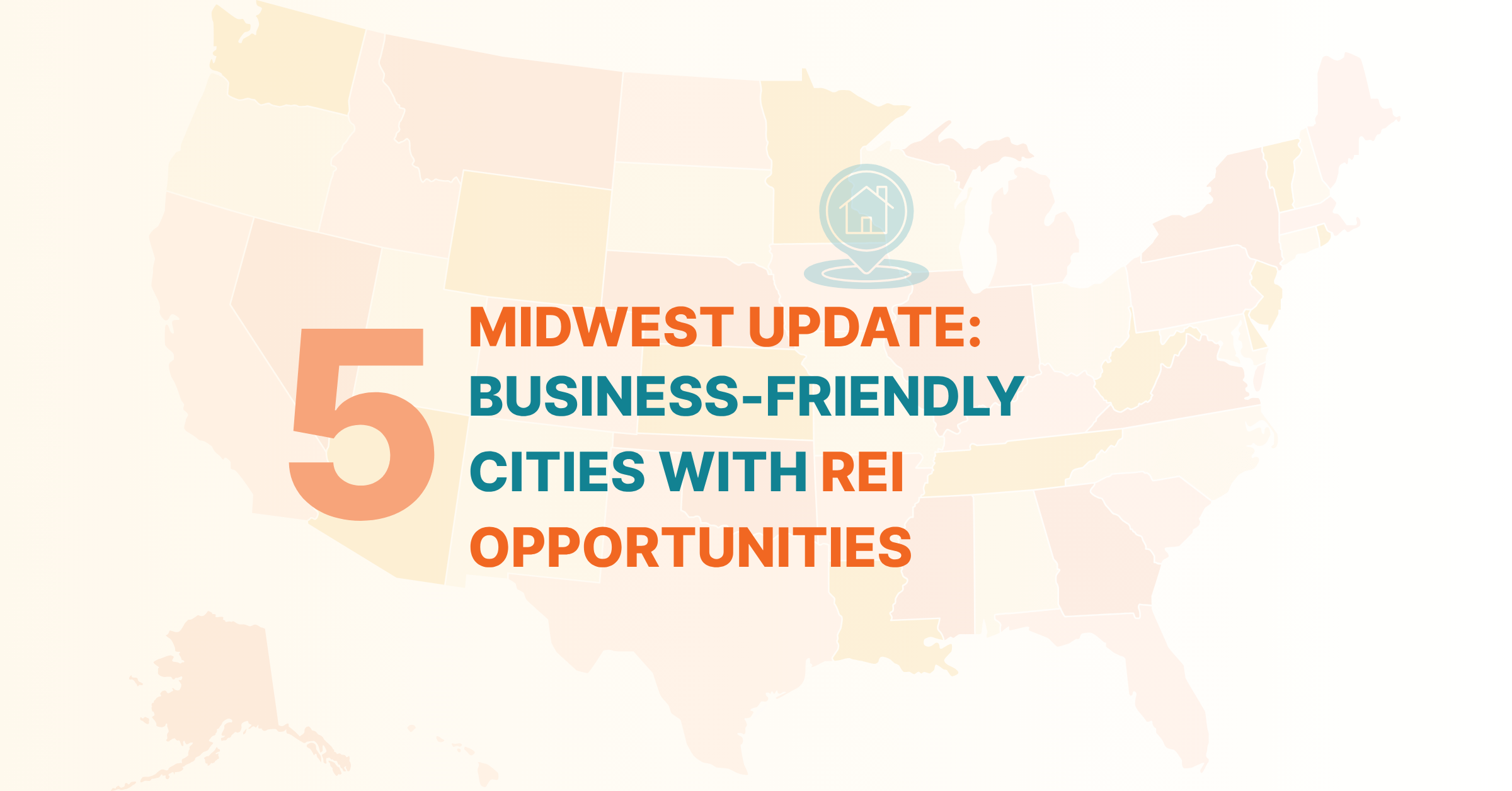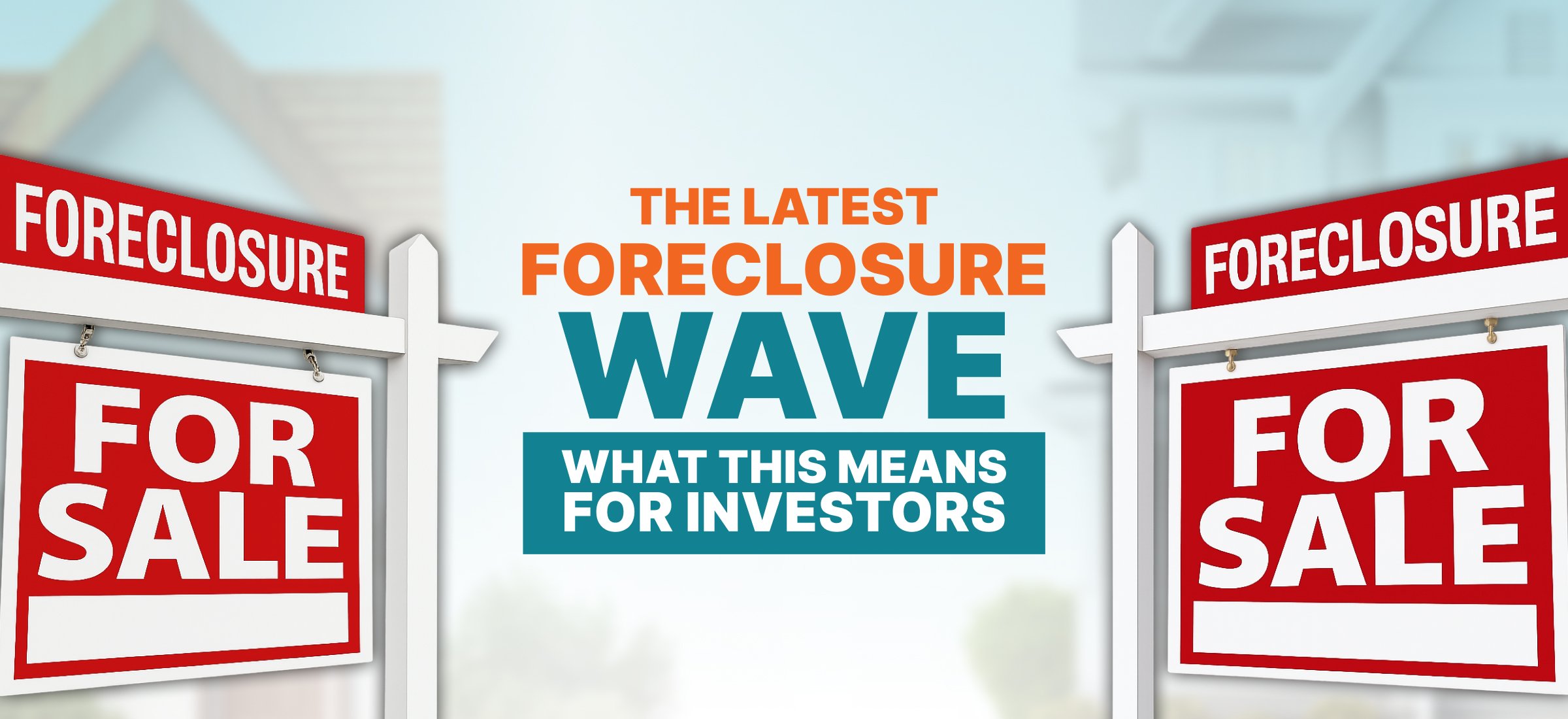As a landlord, many of your successes and struggles can depend on the state you live in, as some states are more favorable to landlords than others.
A landlord-friendly state is one whose laws, regulations, and rental market trends tend to benefit the landlord over the tenant. This doesn’t mean that tenants are mistreated in these states. However, it does mean that landlords have more control over how they manage their rental properties.
In this article, we’ll go over the factors that impact how landlord-friendly a state is and the top 10 most-landlord-friendly states in 2023!
Table of Contents
- What Makes a State Landlord-Friendly?
- Alabama
- Colorado
- Georgia
- Arizona
- Texas
- Florida
- Indiana
- North Carolina
- Illinois
- Ohio
- Use PropStream to Find Your Next Rental Property
What Makes a State Landlord-Friendly?

Many factors affect how landlord-friendly a state is, including the following:
The state economy. This includes the health of a state’s business environment, its unemployment rate, its population growth, and its gross domestic product (GDP). When these are strong, landlords can typically expect a more stable tenant pool and rental income.
Property taxes. Property taxes are an operating cost that cuts into landlords’ profit margins. The higher the property tax rate is, the less profit is left over for landlords.
Rent control laws. Rent control laws place limits on how and when landlords can increase rent. In some cases, such laws can cap the rent below what the market will bear, reducing landlords’ potential rental income as a result.
The eviction process. At times, landlords may need to evict difficult tenants (e.g., those who don’t pay rent or damage the rental property). Some states make the eviction process more difficult for landlords to carry through than others (e.g., requiring lengthy notices, eviction processing fees, and costly legal assistance).
Deposit limits. A security deposit can help assure a landlord of a prospective tenant’s intent to lease, and it can help pay for any damages or lost property after they move out. However, some states limit how much landlords can charge for deposits (e.g., one month’s rent).
Landlord-tenant laws. These govern the rights and obligations of landlords and tenants with regard to the rental property. For example, some states may regulate how much notice landlords must give tenants before entering a unit or how much notice either party must give before terminating a lease.
Landlord license requirements. Some states (or areas within states) require landlords to obtain a license to rent out a property, while others don’t.
By knowing where states stand on the points above, you can make a more informed decision about where to invest for relatively high rental profits and relatively little stress.
So without further ado, here are the top 10 most landlord-friendly states in the U.S.:
1. Alabama
Alabama can be a great place for landlords on many fronts. For one, its median effective property tax rate of 0.43% is the second lowest in the nation. Plus, the state preempts rent control.
Regarding deposit limits, Alabama landlords can charge up to one month’s rent (with exceptions for pet deposits, deposits to cover undoing tenant’s alterations, and deposits to cover tenant activities that pose increased liability risks).
There are restrictions on late fees, but tenants only have seven days to pay overdue rent or move before a landlord can file for an eviction.
You also don’t need a license to be a landlord in Alabama, but you do need to provide two days' notice before entering a tenant’s unit.
2. Colorado
Colorado has a booming economy that includes thriving tourism and tech industries. Its state economy is ranked second strongest in the nation and first overall for employment. This means the demand for rentals is relatively stable.
Furthermore, Colorado has a median effective property tax rate of only 0.52%, and the state preempts rent control. The state also has no deposit limits or late fee regulations.
Once rent is overdue, tenants have ten days to pay or move before landlords can file for an eviction (those in single-family houses being rented under an "exempt residential agreement” have only five days).
Colorado doesn’t require landlords to get a license or give notice before entering a property, though 24 hours is recommended.
3. Georgia
Though you must get a landlord license to own rental property in Georgia, the state favors landlords in many other ways.
For example, Georgia has the twelfth-best state economy in the nation and the ninth-best business environment (based on tax burden, the monthly birth rate for new businesses, the rate of patents for new inventions, and more).
On top of that, Georgia has a relatively low median effective property tax rate of only 0.95%, and it preempts rent control.
The state also has no deposit limits or late fee regulations, and landlords can file for eviction as soon as rent is overdue. The tenant then has seven days to appeal the eviction judgment.
Finally, you don’t need to notify tenants to enter their unit (though again, 24 hours is recommended).
4. Arizona

With temperatures regularly exceeding 100°F, Arizona is a popular destination for retirees and snowbirds, many of whom choose to rent. This, coupled with the fact that Arizona is ranked fourth for state population growth and GDP growth, can provide landlords with a stable source of rental income.
Other reasons Arizona is landlord-friendly include its median effective property tax rate of 0.60%, the preemption of rent control, and the lack of a landlord license requirement. Also, once rent is overdue, tenants only have five days to pay it before landlords can file for eviction for a $35 fee.
That said, landlords are limited to charging only up to one and a half months’ rent for a security deposit. They must also provide two days' notice before entering a tenant’s unit (except in emergencies).
5. Texas
Texas is one of the fastest-growing states in the U.S. Many renters move here for the warm weather, low tax burden, and increasing job opportunities (especially in major cities like Houston, Austin, and Dallas). Texas’s economy is ranked ninth nationally. As a result, landlords can expect a fairly steady stream of renters.
Other things Texas has going for it include no rent control, no deposit limits, no landlord license requirements, and no notice-of-entry regulations. In addition, the median effective property tax rate is 1.90%.
As for the eviction process, tenants have ten days to pay overdue rent or move before landlords can file for eviction for a $25 fee.
6. Florida
Florida is another one of the country’s fastest-growing states. In fact, at the end of last year, the U.S. Census Bureau reported that it had become the fastest-growing state. This, combined with Florida’s strong economy (ranked eighth nationally), can make Florida a great place to be a landlord.
Additionally, the median effective property tax rate in Florida is 0.89%, and there are no rent controls, deposit limits, late fee regulations, or landlord license requirements.
Once rent is overdue, tenants have only three days to pay it before landlords can file for an eviction. However, the fee for filing an eviction is $180, and tenants can appeal the eviction action for up to 30 days.
It’s also worth noting that landlords and tenants only need to provide 15 days' notice to change or terminate a lease, and landlords must provide at least 12 hours' notice before entering a unit for non-emergencies.
7. Indiana
Indiana is home to several top-ranked colleges and universities (e.g., Purdue and Notre Dame), which can provide landlords with a steady source of rental income from students and young professionals.
The state also has a median effective property tax rate of 0.83% and no rent control, deposit limits, late fee regulations, or landlord license requirements.
Regarding evictions, tenants have ten days to pay overdue rent or move before a landlord can start the eviction process.
Lastly, to enter occupied units for non-emergencies, landlords are required to give tenants “reasonable” notice according to Indiana law.
8. North Carolina

North Carolina attracts a steady demand for rentals through its thriving tech, finance, and healthcare industries and its relatively low cost of living. For landlords, this can mean relatively stable rental income.
In addition, North Carolina has a median effective property tax rate of only 0.80%, and the state preempts rent control.
The deposit limit in North Carolina is two months’ rent unless the rental agreement is month-to-month. Then it’s one-half month’s rent.
Tenants in North Carolina have 10 days to pay overdue rent or move before landlords can file for an eviction. And either party is only required to give seven-day notice to change or terminate a lease.
Finally, there is no requirement to get a landlord license in North Carolina or provide entry notice (though 24 hours is recommended).
9. Illinois
Though the median effective property tax rate in Illinois is a little higher than in other states on this list (2.29%), and you may be required to get a landlord license in some areas, Illinois has a lot to offer landlords.
For example, Illinois is home to the third-largest city in the country, Chicago, which attracts a steady pool of renters who come for job opportunities (among other things). The state also preempts rent control, and there are no deposit limits or regulations on late fees.
Once rent is overdue, tenants have only five days to pay it or move before landlords can begin eviction.
Keep in mind, however, that landlords must provide 24-hour notice before entering a tenant's unit unless it’s an emergency.
10. Ohio
Ohio is landlord-friendly because it attracts a steady stream of renters through its top-ranked colleges and universities, relatively low cost of living, and strong manufacturing, healthcare, and financial industries.
Other things that make Ohio attractive to landlords include the lack of rent control, deposit limits, landlord license requirements, and regulations on late fees. In addition, tenants only have three days to pay overdue rent before landlords can start eviction.
It’s important to note, however, that the median effective property tax rate in Ohio is slightly higher than that in other states on this list (1.57%), and landlords must provide 24-hour notice before entering rental units for non-emergencies.
Use PropStream to Find Your Next Rental Property
Whether you’re a seasoned landlord or just getting your foot in the door, where you choose to invest can play a large part in your success.
Once you’ve narrowed down a state to invest in, you can use PropStream’s Heat Map to identify thriving areas within that state. From there, start creating lists of quality rental property leads.
Sign up for our 7-day free trial today and enjoy 50 leads on us!
Notes on sources:
- Data on state economy rankings taken from U.S. News.
- Data on median effective property tax rate taken from The Motley Fool.
- Data on rent control laws taken from the National Multifamily Housing Council (NMHC).
- Data on eviction and late fee laws taken from the Legal Services Corporation (LSC).
- Data on deposit limits taken from Nolo.com.
- Data on notice requirements to terminate or change lease taken from Nolo.com.
- Data on entry notice and landlord license requirements taken from Avail.co.



